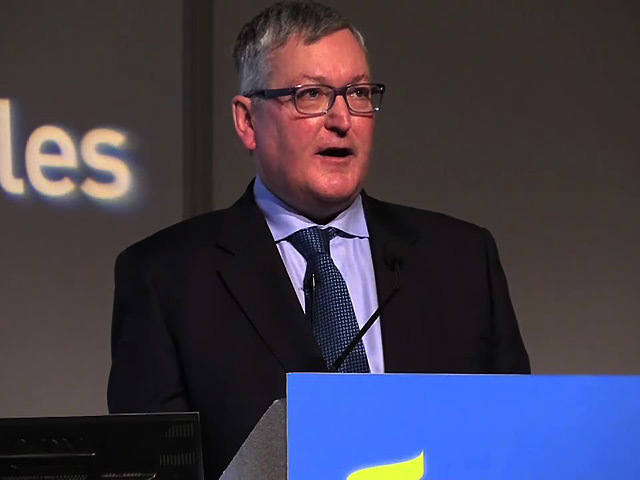
The employment threat from the plunging oil price has produced the “the most serious jobs situation Scotland has faced in living memory” with urgent changes to the tax regime required, Holyrood’s Energy Minister said.
Fergus Ewing demanded action from the UK Government as Energy Secretary Ed Davey was visiting Aberdeen to talk to leading figures in the North Sea oil and gas sector.
With Chancellor George Osborne due to unveil his final budget before the election in March, Mr Davey suggested “we may well be able to have extra help for the North Sea”.
The UK Government minister also said that the drop in oil prices – which have now fallen to below 50 US dollars a barrel – would have left Scotland in a “frankly dire” financial situation if the country had voted for independence last year.
But Mr Ewing said the two governments needed to“put the politics aside” and get a new tax deal implemented for the North Sea “because it will save jobs”.
He insisted action was needed before the budget, warning that “unless there is swift action to introduce that tax package, then investment decisions will be made between now and March prematurely to decommission fields which should carry on in production for many years if not decades to come”.
Scotland’s First Minister Nicola Sturgeon was in Aberdeen yesterday where she announced a new task force to help address the threat to jobs that comes from the drop in oil prices.
Meanwhile workers at oil giant BP are bracing themselves for job losses. The firm announced restructuring plans last month following the fall in oil prices and is expected to give information today on its plans affecting jobs.
Mr Ewing said: “Our thoughts are with all the people in the North East of Scotland in particular who face job losses at this time. That is why the First Minister announced yesterday the formation of a task force.”
The Scottish Government has also been pressing Westminster to make a series of tax changes to help the industry, including the introduction of an investment allowance, tax credits for exploration and a reversal of the previous hike in the supplementary charge.
These measures combined could boost investment in the North Sea by more than £40 billion and support more than 30,000 jobs, according to Mr Ewing.
He said: “We set out our proposals last week for an investment allowance, exploration tax credit to bring up the woeful level of exploration at present and also a removal of the 12% hike in the supplementary charge on a timed basis.
“The reason that the need for speed is so important, is from my detailed discussions with industry in nearly 60 days spent in Aberdeen as Energy Minister I can tell you that unless there is swift action to introduce that tax package, then investment decisions will be made between now and March prematurely to decommission fields which should carry on in production for many years if not decades to come.”
Mr Ewing continued: “It is clear to me that the UK Government has accepted it must act on tax, my question is why wait in respect of the supplementary charge until March?
“The supplementary charge was hiked up by 12% precisely because oil prices were relatively high, now they are shockingly low surely swift action is required.
“If there is a benefit in being in the United Kingdom, and I don’t want to re-run this argument, surely the need for swift action by government is paramount and when there is an urgent situation … I think this is the most serious jobs situation Scotland has faced in living memory.”
He refused to say precisely how many jobs could be at risk, but added: “A package of tax measures, if introduced quickly, will avert job losses because it will give confidence and succour back to investors and boardrooms around the world who are looking for a sign that the UK Government has got it.”
Recommended for you
